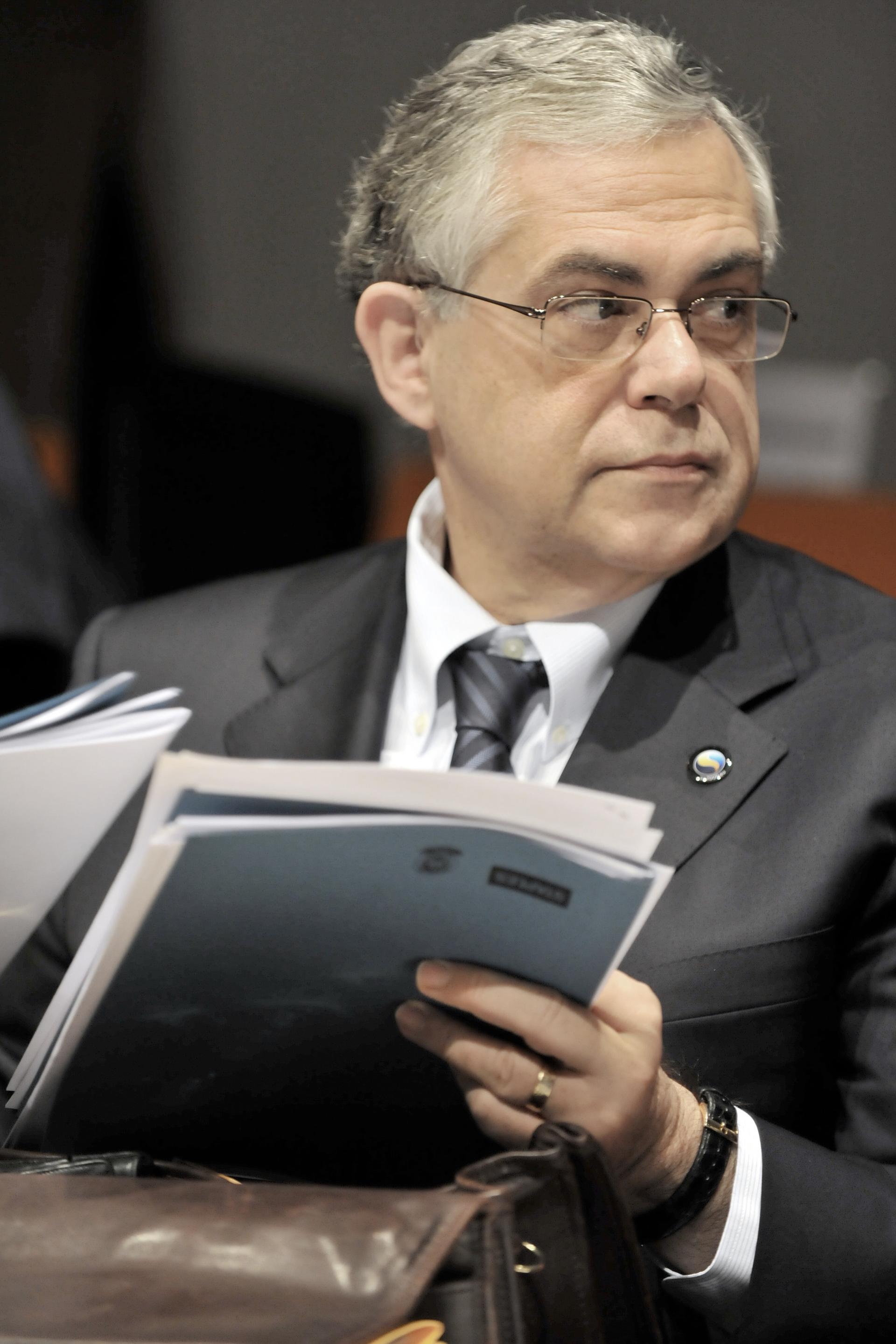Greek prime minister warns of loan default
European Central Bank VP Lucas Papademos will reportedly become the next Greek PM.
The Greek prime minister offered dire warnings Wednesday, saying his country may default on loans without cuts to labor costs.
Prime Minister Lucas Papademos told union and business leaders that Greece faces “disorderly default” in March without wage cuts, the Wall Street Journal reported.
“As a result of our actions and decisions in coming weeks, everything will be decided,” he said.
The interim Greek leader said international creditors would balk at approving the country’s $169-billion bailout without significant concessions. At stake is $18.7 billion worth of bonds and a possible withdrawal from the euro zone. Loans from private sector investors have financed much of the country’s debt, and Greece must re-finance those loans by March 12.
Strategies suggested include lowering the minimum wage and reducing annual pay by as much as two months, holiday bonuses popular in Greece and known as the 13th and 14th salaries. Reaction from the nation’s largest labor union, the General Confederation of Greek Workers (GSEE), was swift,
“Workers and pensioners have shouldered a disproportionately high burden of the crisis, and now have no more leeway for further cutbacks and reversals in labor relations,” a GSEE statement reported on ABC News said.
GSEE president Yannis Panagopoulos said the national collective wage agreement is off the table. Panagopoulos said his members “are not willing to take a single step back” in the face of any wage-reduction demands, Voice of America reported.
MORE ON GLOBALPOST: What would happen if Greece left the euro zone?
The prime minister’s warning comes ahead of further meetings with the so-called “troika” – European Commission, International Monetary Fund and European Central Bank. Troika inspectors arrive in Greece on Jan. 15 for a further valuation. Experts suggest, however, that there is little chance of the troika rejecting Greece outright.
"Without a firewall in place to stem contagion from a Greek default to other European banks, it is very unlikely the troika will decide to deny Greece the funds and cut the country loose," Megan Greene at Roubini Global Economics told the BBC. "However, even if the troika does transfer the next tranche of funds to Greece, the country risks a hard default, unless a deal is agreed on private sector involvement before March."
This is the second Greek bailout, negotiated in principle last October, provided Greece took steps to repair its damaged economy.
